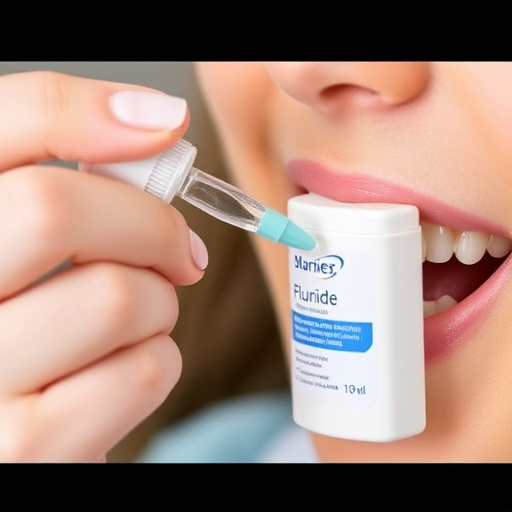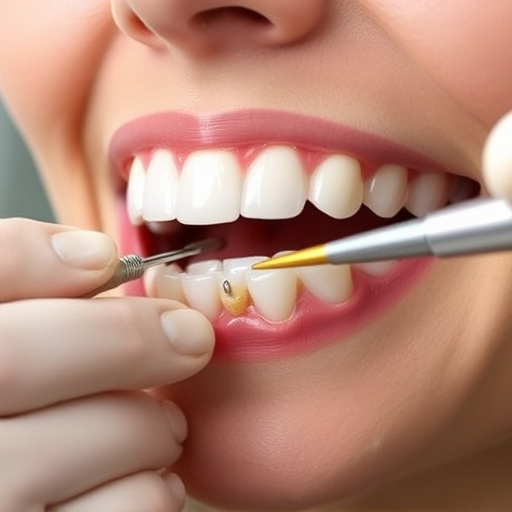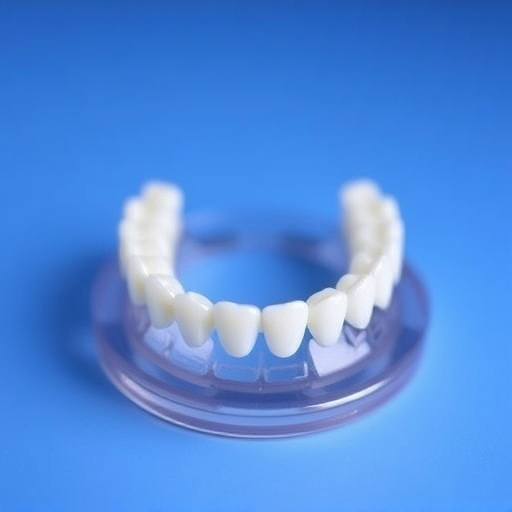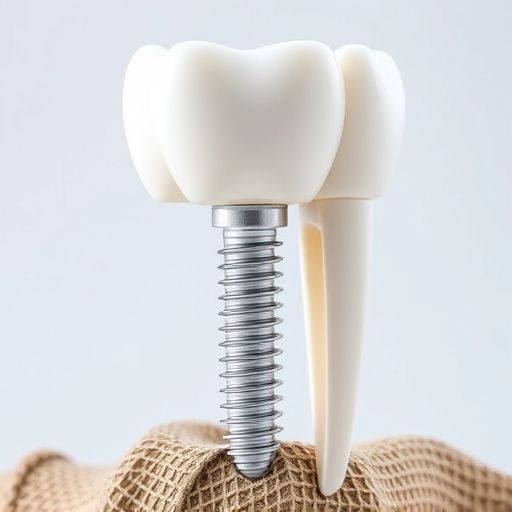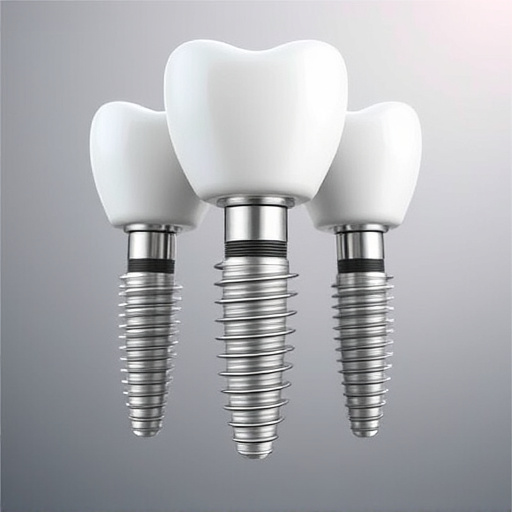Dry mouth (xerostomia) is an often-overlooked oral health issue caused by low saliva production, leading to tooth decay, gum disease, and erosion. Long-term effects may require dental treatments like crowns or bonding. Causes include medications, medical conditions, and aging. Prompt action with dry mouth solutions and regular family dentistry visits are crucial for maintaining gum and tooth health. Effective solutions range from artificial saliva to prescription medications, while children's dentistry professionals also address the issue early on. Integrating dry mouth management into daily routines, along with hydration, sugar-free gum, and restorative dentistry, promotes holistic oral care.
Dry mouth, or xerostomia, is a common yet often overlooked condition affecting dental health. It occurs when the salivary glands produce insufficient saliva, leading to various oral issues such as tooth decay and gum disease. This article explores effective dry mouth solutions to alleviate symptoms and promote better gum and tooth well-being. From understanding the causes to integrating management into daily routines, discover how simple strategies can significantly enhance your oral care regimen.
- Understanding Dry Mouth: Causes and Effects on Dental Health
- Exploring Effective Dry Mouth Solutions for Optimal Gum and Tooth Well-being
- Integrating Dry Mouth Management into Your Daily Routine for Long-Lasting Oral Care
Understanding Dry Mouth: Causes and Effects on Dental Health

Dry mouth, medically known as xerostomia, is a common yet often overlooked condition that can significantly impact overall oral health. It occurs when the saliva glands produce insufficient saliva, leading to a dry mouth and a range of dental issues. Understanding its causes is essential in implementing effective dry mouth solutions.
The effects of dry mouth are far-reaching. Saliva plays a crucial role in neutralizing acids produced by bacteria in the mouth, thus preventing tooth decay and gum disease. Without adequate saliva, these bacteria thrive, causing tooth erosion, increased risk of cavities, and inflammation or infection of the gums. Long-term dry mouth may even contribute to more serious dental issues such as dental crowns or dental bonding becoming necessary due to extensive tooth damage. Many factors can trigger dry mouth, including certain medications, medical conditions, and even natural aging processes. Addressing this condition promptly through appropriate dry mouth solutions is vital for maintaining optimal gum and tooth health, especially within the context of regular visits to a family dentistry practice.
Exploring Effective Dry Mouth Solutions for Optimal Gum and Tooth Well-being
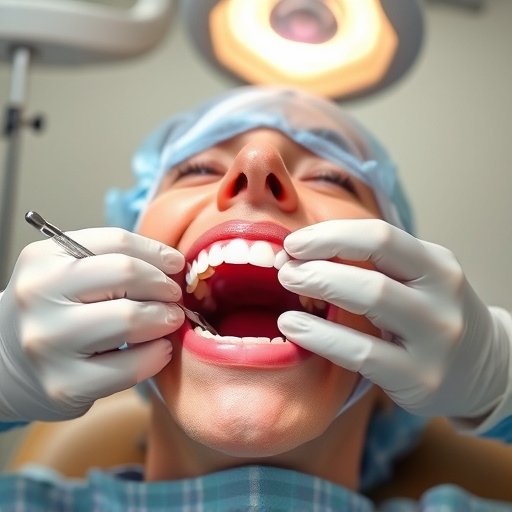
Dry mouth solutions are essential for maintaining optimal gum and tooth health. When the mouth produces insufficient saliva, it can lead to a range of discomforts and dental issues. Exploring effective dry mouth solutions is crucial in mitigating these problems. One of the primary approaches involves using artificial saliva or mouthwashes designed to replace the natural moisture, thereby alleviating dryness and associated symptoms.
In the realm of comprehensive dental care, family dentistry plays a pivotal role. Many family dentistry practices now offer tailored dry mouth solutions to suit individual needs. From simple over-the-counter products to prescription medications, these options can significantly enhance oral well-being. Additionally, children’s dentistry professionals are increasingly recognizing the impact of dry mouth on young patients, providing suitable treatments and educating parents about comprehensive dental care for their kids, ensuring a healthy smile from an early age.
Integrating Dry Mouth Management into Your Daily Routine for Long-Lasting Oral Care

Integrating dry mouth management into your daily routine is a simple yet powerful step towards achieving and maintaining better gum and tooth health. Dry mouth, or xerostomia, can be caused by various factors, including certain medications, medical conditions, and lifestyle habits. By incorporating specific practices, you can effectively alleviate symptoms and promote a healthier oral environment. Regular hydration is key; drinking an adequate amount of water throughout the day helps moisten your mouth and support saliva production, which is essential for neutralizing acids and remineralizing teeth.
Additionally, using dry mouth solutions like artificial saliva or sugar-free gum can provide significant relief. These products replace lost moisture and minerals, helping to prevent tooth decay and gum disease. Incorporating these practices into your comprehensive dental care routine, alongside restorative dentistry procedures like dental implants when necessary, ensures a holistic approach to oral health. This means taking proactive steps not just to treat existing issues but also to prevent future problems, ensuring long-lasting health for your gums and teeth.
Dry mouth solutions aren’t just about alleviating discomfort; they’re a key component of maintaining optimal gum and tooth health. By understanding the causes and effects of dry mouth, exploring effective remedies, and integrating management into daily routines, individuals can significantly enhance their oral care regimen. Remember that consistent hydration, proper oral hygiene, and seeking professional advice are essential steps towards a healthier, wetter mouth and stronger teeth.




